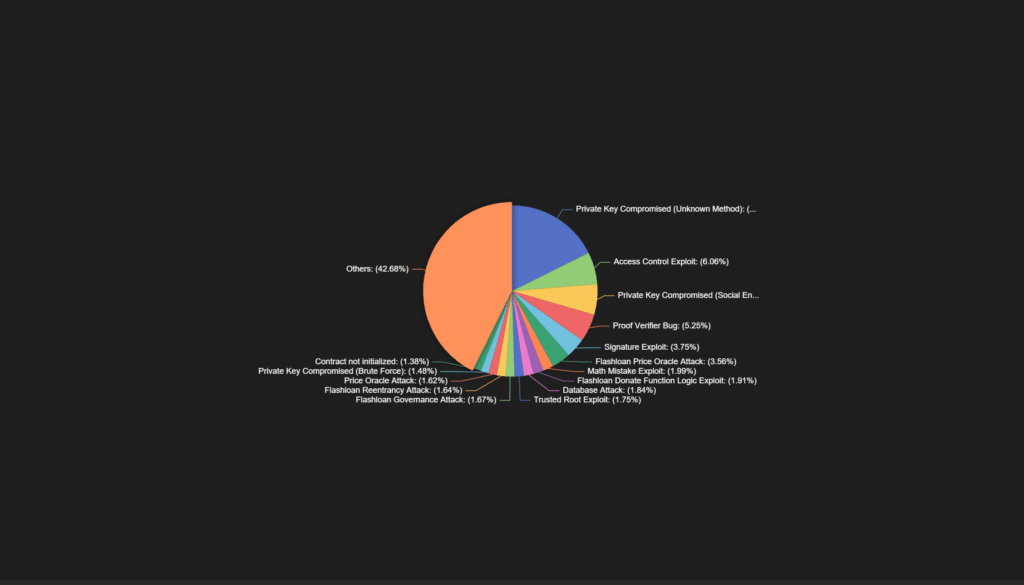Cryptocurrency hacks have cost the digital asset industry billions of dollars, and experts are advising security measures to receive more attention and resources.
According to DefiLlama, as of April 1, historical losses from cryptocurrency hacks exceeded $7.7 billion, despite a 23% year-on-year decline in incidents in the first quarter of 2024. The decentralized finance protocol suffered its biggest loss since 2016, data revealed, with hackers stealing $5.8 billion from defi over seven years.
Platforms that allow users to transfer assets between blockchains, commonly referred to as bridges, account for more than half of defi hacks. The exploiter plundered his $2.8 billion from these solutions through several attack vectors inherent in smart contract loopholes.
According to DefiLlama, private key leakage, access control abuse, proof verifier bugs, signature abuse, and flash loan price oracle attacks rank as the five most common methods of cryptocurrency hacking. However, 42% of all incidents remain unsolved, leaving experts unsure how attackers orchestrated nearly half of all hacks.

first recorded crypto hack
The oldest recorded crypto hack was perpetuated on “The DAO,” a decentralized autonomous organization focused on raising venture capital funding. The effort, launched in April 2016, was hacked two months later in June, resulting in losses of approximately $60 million.
Hackers were able to exploit the reentrancy bug to execute the withdrawal function multiple times within a single transaction and exfiltrate funds.
Ronin's record $600 million cryptocurrency hack
Axie Infinity's Ronin Bridge lost more than $600 million in a cryptocurrency hack by North Korea's notorious cybercrime group Lazarus. This remains the largest single protocol exploit of a cryptocurrency to date.
As reported by crypto.news, Lazarus extorted hundreds of millions of dollars in Ethereum (ETH) and Circle stablecoin USD Coin (USDC) after compromising Ronin's private keys. Ronin made a comeback this year with support from exchanges like Binance and coin listings on Coinbase.
Security remains an issue for cryptocurrencies, but experts opine that the industry will eventually become more resistant to bad actors as stakeholders forge better relationships.
We believe that the cryptocurrency industry will gradually achieve comprehensive security over time. This requires steady growth of the industry, along with effective cooperation between governments, law enforcement, and the cryptocurrency sector.
Slava Demchuk, AMLBot Co-Founder and CEO


